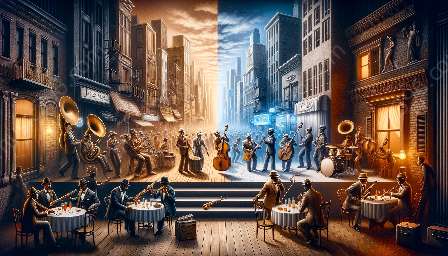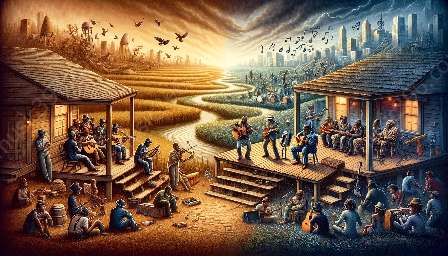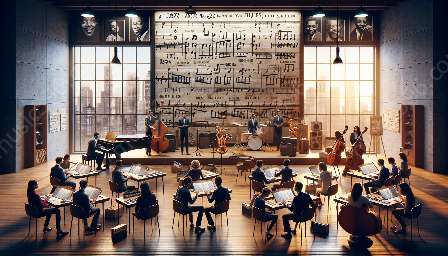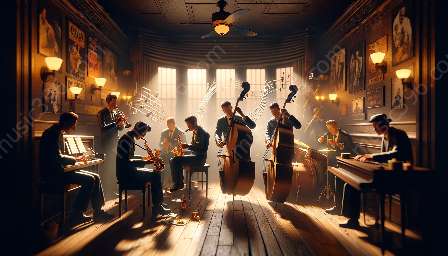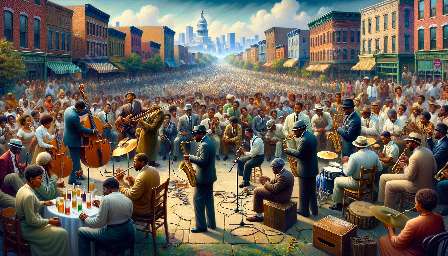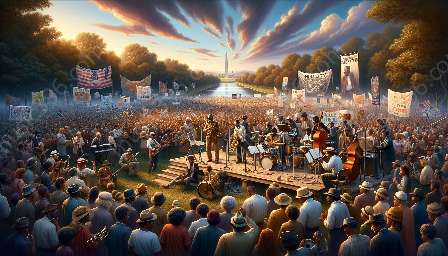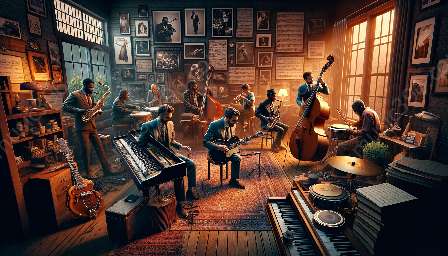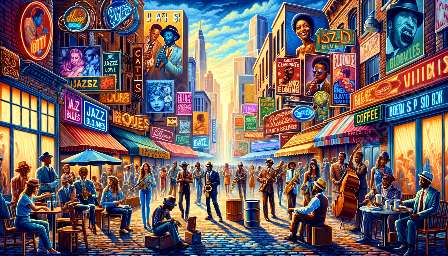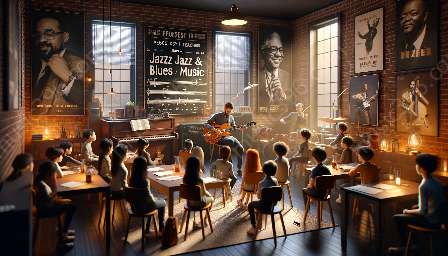Oral tradition and storytelling have played a crucial role in preserving the rich history and cultural significance of jazz and blues music, particularly within the African American community. The tradition of passing down stories and experiences orally has been a vital aspect of safeguarding the heritage and legacy of these musical genres for future generations.
The Role of Jazz and Blues in African American Culture
Jazz and blues music have deep roots within African American culture, serving as a powerful form of self-expression, resistance, and resilience. From the early days of slavery to the present, these musical genres have been an integral part of the African American experience, reflecting the struggles, triumphs, and emotions of the community.
Preserving Jazz and Blues History Through Storytelling
The preservation of jazz and blues history through oral tradition and storytelling has been essential in retaining the authenticity and depth of these musical traditions. The passing down of stories, songs, and experiences from one generation to the next has allowed for the preservation of the cultural significance and historical journey of jazz and blues.
Community Gathering and Storytelling
Within the African American community, storytelling often takes place in community gatherings, where elders share their experiences and memories related to jazz and blues music. These gatherings create a sense of connection and continuity, allowing younger generations to understand and appreciate the cultural importance of these musical genres.
Transmission of Musical Techniques and Styles
Oral tradition and storytelling also play a crucial role in transmitting musical techniques and styles unique to jazz and blues. Through storytelling, musicians pass down the intricate details of improvisation, rhythm, and emotional expression, preserving the essence of these genres beyond musical notations.
Preservation of Cultural Identity
Storytelling serves as a means of preserving the cultural identity associated with jazz and blues music. Through personal narratives and accounts, individuals within the community maintain a strong connection to their heritage, ensuring that the essence of jazz and blues remains deeply rooted in African American culture.
Legacy of Oral Tradition in Jazz and Blues
The legacy of oral tradition and storytelling in jazz and blues extends beyond the mere preservation of history. It encapsulates the soul, emotions, and lived experiences of individuals, creating a dynamic tapestry of narratives that form the very fabric of these musical genres.
Impact on Music Education and Awareness
Oral tradition and storytelling contribute to the broader understanding of jazz and blues music, offering insights into the historical context, socio-political significance, and emotional landscape of these genres. This form of cultural transmission enriches music education and fosters a deep appreciation for the complexities of jazz and blues.
Intersection of Past and Present
Through storytelling, jazz and blues enthusiasts bridge the gap between the past and the present, allowing for a continuous dialogue between different generations. As stories are shared and passed on, the legacy of jazz and blues evolves dynamically, integrating contemporary experiences while honoring the traditions of the past.
Conclusion
Oral tradition and storytelling play a fundamental role in preserving the history, cultural significance, and emotional depth of jazz and blues music within African American culture. By sharing personal narratives, musical techniques, and experiences, this tradition ensures that the legacy of jazz and blues remains vibrant and relevant for generations to come.

